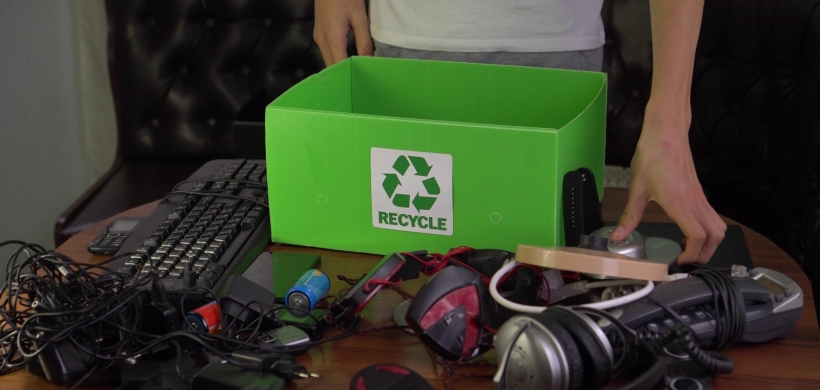Image: Shutterstock / Fevziie
You might be surprised to learn what counts as hazardous waste. Things like antifreeze, asbestos (used in old buildings), car batteries, tyres, garden chemicals, old fridges, freezers, computer screens, engine oil, fire extinguishers, gas bottles, regular batteries, paint and paint thinners, energy-saving light bulbs, plasterboard, and plastic oil tanks are all hazardous. We can't just throw these items in the bin like other rubbish.
If we don't throw away hazardous rubbish the right way, it can harm the ground and water, which is bad for animals and us too. By doing the right thing with our rubbish, we help keep the air and water clean, save important resources, and look after animals' homes.
The best ways to throw away hazardous rubbish
Your local council has rules on how to get rid of dangerous rubbish safely. Always check their advice first. You can find this information on their website or by asking them directly.
Disposing of paint and electronic waste
Some of the most common things we throw away that many don’t realise are hazardous are paint and electronics.
For paint, it's best to donate any unused paint to community projects or use a paint recycling service, which can turn old paint into new products. If disposal is the only option, solidify it first by adding cat litter or a commercial paint hardener, then dispose of it with your regular rubbish.
Electronics, on the other hand, should never be thrown in the bin. They contain valuable materials that can be recycled and harmful substances that need special handling. You can take them to a local recycling centre, use a retailer take-back scheme when buying a new item, or look for special electronics recycling events. Some charity shops will also accept working small electronics and where they are broken small electronics can often be put in domestic recycling bins – check you local authority collection.
Remember, recycling and proper disposal help conserve resources and prevent pollution, so it's important to check with your local council for specific guidance and services available in your area. Click here to find more advice around reusing and recycling.
Here at LiveWest we have completed pilots which have now been adopted across the business utilising the Dulux paint can recycling scheme and the CEF WEEE recycling scheme. Find out more about sustainability at LiveWest
By following these tips and listening to what the local council says, we're doing our part to protect our planet.
